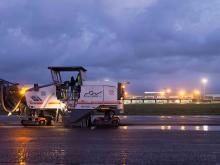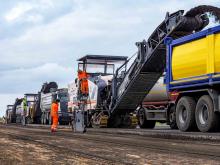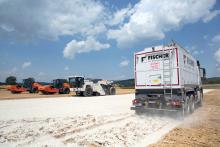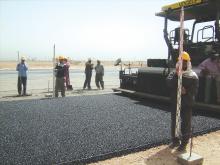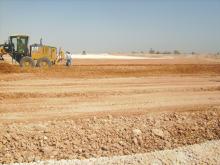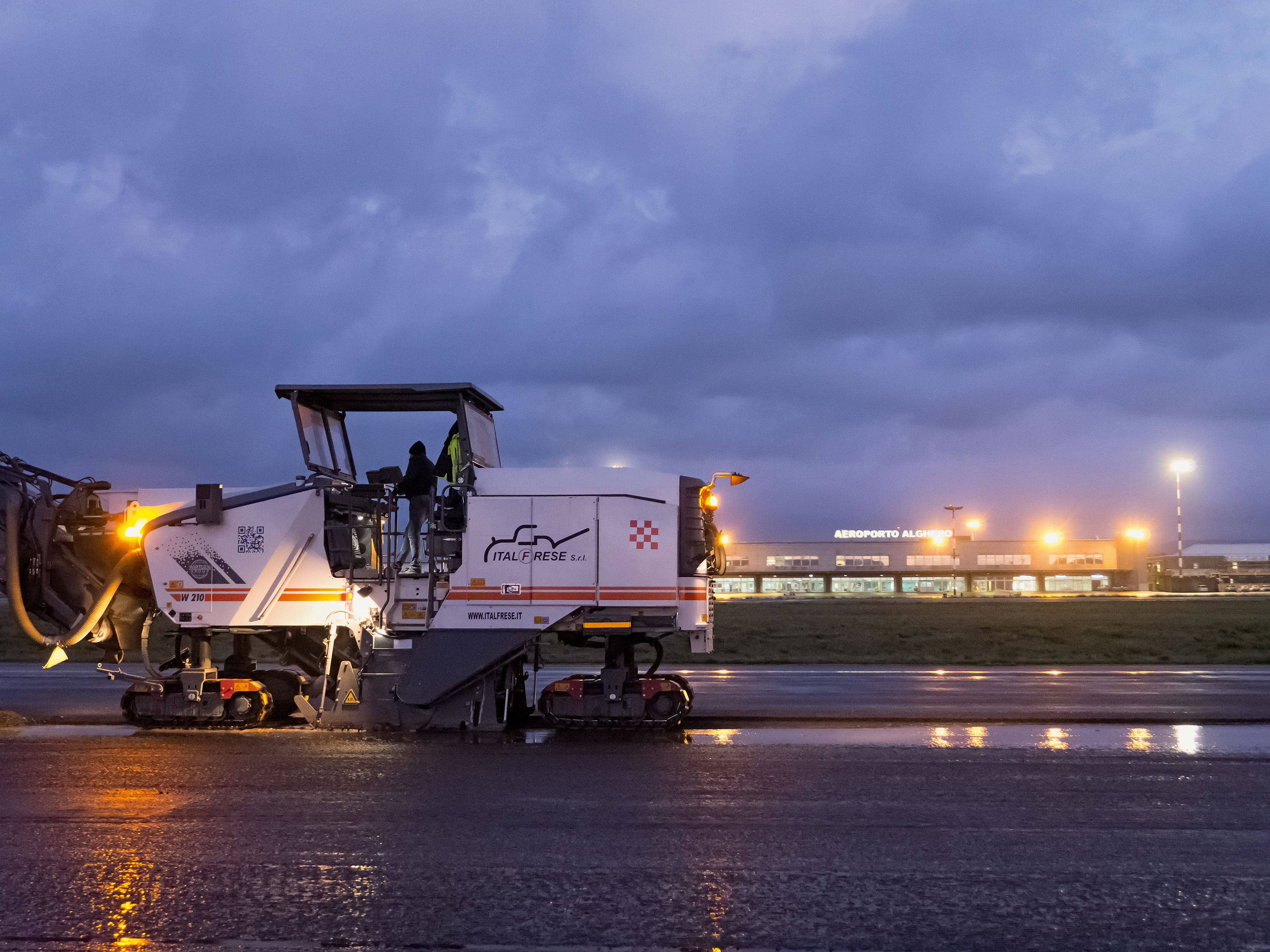
Wirgen cold milling machines have been used to help rebuild the runway at Alghero-Fertilia Airport in Sardinia
The fleet used comprised two
Located roughly 8 km north-west of the city of Alghero, Alghero-Fertilia Airport is one of three commercial airports on the Italian island, along with Cagliari Elmas and Olbia. Built as a military airport in the late 1930s, Alghero-Fertilia still occasionally handles military aircraft. However commercial flights represent its main traffic and as it serves the provinces of Sassari and Oristano, it is a major hub for various low-cost carriers and handles 1.7 million passengers/year. As the summer months are particularly busy, the owner, Società di Gestione Aeroporto di Alghero (SOGEAAL) decided to use the off-season period in early November to carry out necessary maintenance work.
The maintenance schedule called for rehabilitation of a 2.1km long by 19m wide stretch of the runway surface. In addition, the underlying courses had to be stabilised over a further stretch 600m long and 19m wide at the end of runway 20. The ground in this particular section is subjected to heavier loads due to aircraft landing. This has already led to a reduction in load-bearing capacity resulting from both material fatigue and the composition of the soil.
The size of the area to be milled, the standards which applied to the stabilisation work and the short time frame allowed for the project all called for a service provider with the necessary experience and the right equipment. The contract was awarded to Italian contractor Italfrese, while the stabilisation work was carried out by subcontractor Consolida.
Italfrese has a large fleet comprising ten Wirtgen cold milling machines, two Wirtgen WR 2000 soil stabilisers and a Streumaster SW 10 TC binding agent spreader.
Logistics presented a challenge for both companies. Semi-trailers brought the construction machines to the port of Genoa. From there, they were loaded onto a ferry for the 12-hour night crossing to Porto Torres in the north-west of the island, roughly 25km from the airport.
According to the schedule, only two days and nights were allowed for the milling work so that the asphalt could be paved without delay. In order not to lose any time during the work, Italfrese set up an efficient system for supplying water and refuelling. Contracts were signed with local haulage contractors to ensure that trucks were available to transport the RAP. The work started at the end of runway 20. Before the soil was stabilised by the two WR 2000s, the cold milling machines removed the complete 300mm-thick pavement over an area of 11,400m², working in several passes and advancing in a staggered formation.
Once the cold milling machines had removed the pavement at the end of the runway in less time than was originally scheduled, excavators removed the base to a depth of 800mm. They were followed by the WR 2000 soil stabilisers and over the next few days these machines stabilised the first 300mm with 2.5% lime and 2.5% cement, as required. The remaining 500mm of soil was also homogenised by the two WR 2000s, adding 3% cement.
At the same time, two W 210 cold milling machines tackled the 2.1km-long runway from which the surface course had to be removed to a depth of 50mm. The challenge here lay in the size of the area to be milled, rather than in the milling depth. All in all, a total area of 37,800m² had to be milled, yielding an RAP volume of roughly 1,900m³.
In this way, the fleet of Wirtgen machines successfully laid the ground for the asphalt paving work and Alghero-Fertilia Airport was able to reopen on schedule.

